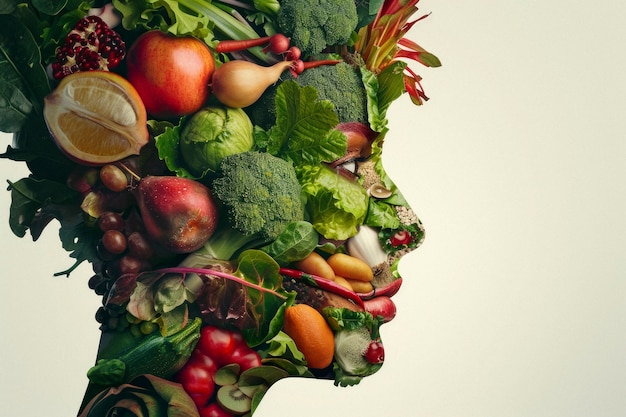
Did you try Veganuary this year or are you thinking about going vegan or eating more plant-based foods? Dr. Gemma Newman has some great tips to share.
With so many diets to choose from, like low fat, high fat, low carb, high carb, vegan, paleo, and keto, it can be tough to figure out which ones actually work. Veganuary is becoming more popular, with numbers significantly increasing each year.
But is a vegan diet healthy? What sets it apart from all the other diets claiming to be good for our health? There’s a lot of confusion about nutrition, often fueled by media, food companies, and even health professionals. However, it’s hard to dispute the benefits of eating lots of vegetables and fruits, choosing whole, unprocessed foods, and avoiding processed meats, sugary snacks, and white flour products.
People often think “everything in moderation” is okay, but that’s not always true. For instance, we wouldn’t advise someone to smoke in moderation. It’s the same with sugary drinks and processed meats. The World Health Organization classifies processed meats as a class 1 carcinogen, meaning they’re known to cause cancer.
Fortunately, Dr. David Katz, with experts from the American College of Lifestyle Medicine, has reached a consensus on healthful eating. They agreed on a diet rich in vegetables, fruits, beans, nuts, seeds, whole grains, and water as being key to good health.
If you compare a paleo plate to a whole food plant-based plate, they have more in common than with a typical Western diet, which doesn’t support heart health as well. Heart disease is the leading cause of death, and research, like Dr. Caldwell Esselstyn’s work and the Mount Abu Heart Trial, shows that a whole food plant-based diet can reverse coronary artery blockages within weeks.
Transitioning to plant-based eating from a Western diet may feel daunting, but don’t worry. If you’re ready to try it, start by exploring some helpful cookbooks. “So Vegan in 5” by Roxy Pope and Ben Pook offers over 100 easy recipes with just five ingredients each. “BOSH!” by Henry Firth & Ian Theasby presents over 80 vegan recipes and has become a widely viewed plant-based online channel.
To ease into this lifestyle, think about transforming your favorite dishes into their plant-based versions, like substituting chickpeas for chicken in a curry or using lentils instead of beef in a Bolognese. Gradually experiment with new flavors to make the journey enjoyable. Start with plant-based breakfasts two or three times a week, then do the same with lunches. Over time, you’ll develop new habits and meals that suit your taste.
Switching to a whole food plant-based diet can show benefits in just a few weeks. However, if you experience some initial bloating, it’s likely because your gut is adjusting to the new foods. Both the American and British Dietetic Associations agree that a well-planned plant-based diet is suitable for all ages and can help prevent diseases like heart disease and cancer. It’s also linked to lower risks of chronic respiratory issues and allergies in children, supporting better health both now and in the future.
The British Dietetic Association’s Blue Dot Campaign emphasizes the importance of dietitians offering plant-based advice to people of all ages and income levels. Our modern world faces nutrient depletion due to soil degradation and the overuse of pesticides. A Western diet often lacks essential nutrients like magnesium, folate, and fiber, and is linked with obesity and chronic diseases that can be improved by a whole food plant-based diet.
A nutrient-dense plant-based diet can be very beneficial, sometimes requiring certain supplements, especially if you’re excluding all animal products. Vitamin B12 supplements are necessary for a plant-based diet, as B12 is primarily found in animal products. It’s essential to prevent deficiencies by taking a daily or weekly dose.
Most people also need vitamin D supplements since many are deficient. Aim for at least 1000 IU per day, or 2000 IU if you tend to have low levels. EPA/DHA algae-based supplements can provide omega-3 fatty acids for heart health without consuming fish, offering a cleaner option free from heavy metals found in polluted seas. Including milled flax seeds in your daily intake can also support heart health.
Dr. Gemma Newman has been practicing medicine for 15 years and serves as a Senior Partner at a family medical practice. Her experience spans various specialties, making her well-versed in healthy dietary practices.